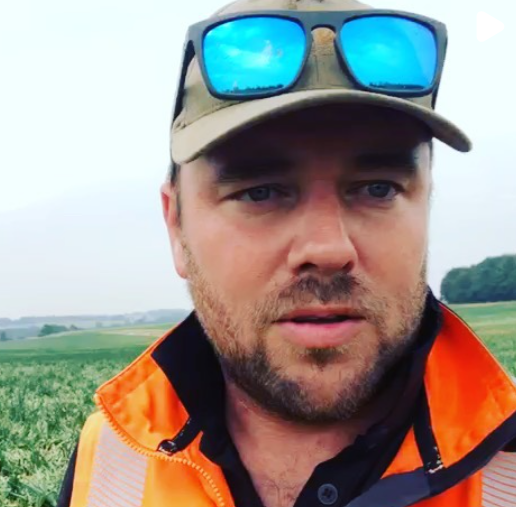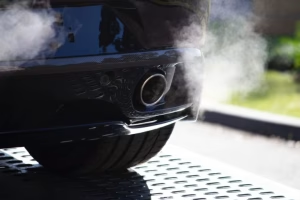High Court Battle Splits £80M Farming Dynasty Over Allegations of Religious Bias and Workplace Conflict
A legal dispute is tearing apart a renowned farming dynasty valued at £80 million, as Thomas Abrey, a member of the Abrey family, claims he has been marginalized by his uncles and cousins due to his affiliation with Scientology. The allegations have led to a bitter division within the multi-generational family business, RG Abrey, as the family members clash over control and management style on the 6,500-acre estate near East Wrexham, Thetford.
Thomas Abrey contends that his cousins, Giles and Matthew, along with their fathers, Richard and Robert, have systematically undermined his authority, disparaging him to staff and excluding him from decision-making because of his adherence to Scientology principles. In response, the family members argue that Thomas has fostered a “toxic working environment” and exhibited an “overbearing demeanor,” resulting in tensions since 2021. This internal conflict has now escalated to the High Court, where Thomas is contesting his recent removal as a director, arguing he was “wrongfully excluded” from the family partnership that has endured for nearly a century.

Thomas Abrey - Instagram
The Abrey family’s agricultural enterprise, founded by Russell Abrey nearly 100 years ago, generates approximately 100,000 tonnes of potatoes, onions, and carrots each year. The estate’s estimated assets total £80 million, with a turnover of £25 million reported in the last financial year. Originally bequeathed to Russell’s three sons—Christopher, Richard, and Robert—the business is now managed by the next generation, with Thomas overseeing the onion division.
Religious Tensions and Allegations of Marginalization
Thomas, supported by his father, Christopher, alleges that his Scientology beliefs have fueled antagonism from his family. He claims that his authority has been eroded by his uncles and cousins, who have publicly criticized him in front of employees and withheld key business information. In court, Thomas’s legal team sought an injunction to prevent his relatives from obstructing his involvement in the business, arguing that his exclusion was unjust and discriminatory.
During the hearing, Judge Nicola Rushton acknowledged the deteriorating relationships within the family. She summarized Thomas’s perspective, noting that he felt increasingly marginalized, with tensions culminating in his removal as a director on September 27, 2024. Thomas’s counsel contended that his family’s treatment of him was driven by bias against his religious beliefs, a claim his relatives strongly dispute.
Family’s Allegations of a Hostile Work Environment
The Abrey family members counter that Thomas’s management style has caused significant workplace issues. They allege that his behavior approaches bullying, creating a “toxic work environment” that has led to numerous complaints from employees. The judge noted that while Thomas asserts his authority has been unfairly reduced, the family argues that he has become difficult to work with, citing employee dissatisfaction and strained relations.
Giles, who has taken on additional responsibilities due to Matthew’s long-term sick leave, emphasized the challenges Thomas’s behavior poses to managing the business. Judge Rushton’s remarks highlighted the family’s stance: “The defendants argue that Thomas is exceedingly difficult to collaborate with and that his domineering conduct has led to significant daily challenges within the business.”
Legal Rulings and Temporary Injunction
In the preliminary hearing, Judge Rushton ruled in favor of a temporary injunction, allowing Thomas to maintain his involvement in the partnership’s business operations. However, the judge stipulated that Thomas must refrain from contacting certain individuals who requested no interaction with him. Judge Rushton clarified that she was not making factual determinations at this stage, with the main legal dispute to be resolved in a future hearing.
“I was convinced by the evidence that, without an injunction, there was a significant risk that Thomas would be increasingly marginalized from the partnership’s operations,” Judge Rushton stated. She emphasized that his exclusion could complicate efforts to reach a final settlement or expedite arbitration, potentially destabilizing his position further.
Arbitration and Broader Family Rift
The Abrey family conflict has escalated to the point where Thomas’s associates are advocating for the dissolution of the partnership, citing his alleged misconduct and confrontational demeanor as reasons for the breakdown. Thomas, however, denies all accusations, asserting that these claims were devised to remove him from the family business. He relies on statements from employees in his division, who claim that Robert, not Thomas, displays anger and creates a challenging work environment. Thomas’s legal team argues that accusations of a “toxic environment” have never been independently investigated.
The judge also referenced statements from former employees who reportedly cited Thomas’s affiliation with Scientology as a source of contention within the family. One former employee allegedly claimed that Robert attributed the family’s issues to Thomas’s beliefs, expressing distrust.
Aviation Feats and Family Legacy
Adding a unique aspect to the case, Giles Abrey, who is opposed to Thomas in the dispute, has achieved media attention for his aviation accomplishments. In 2019, Giles flew solo from the UK to South Africa, emulating pioneer aviator Alex Henshaw’s historic journey from London to Cape Town in 1939. His flight, a 7,750-mile journey that involved navigating high altitudes and overcoming oxygen depletion, raised over £40,000 for charity.
As the Abrey family prepares for a court battle to determine the future of their partnership, the High Court case stands as a complex intersection of family, business, and religious tensions. With a hearing yet to be scheduled for the full trial, the Abrey family must navigate the legal implications of their long-standing partnership, which dates back to the 1930s. The case will also address whether the partnership can survive amid accusations of bias, management conflict, and calls for dissolution.





















